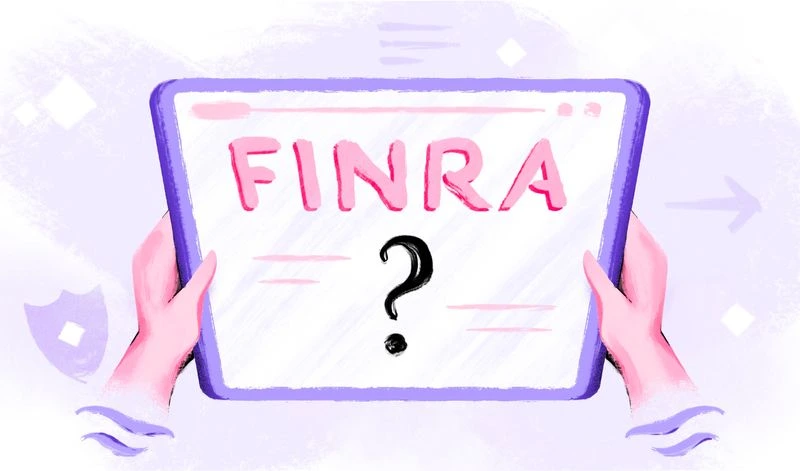In the world of finance, regulation holds a very crucial place. The US’ largest self-regulatory organization FINRA (Financial Industry Regulatory Authority), is a not-for-profit body that protects investors from financial crime. One of the largest self-regulatory organizations in the world, FINRA works along with several stakeholders to create a regulatory landscape for innovation and fairness in US capital markets.
FINRA actively regulates various direct participants in the capital market like broker- dealers, capital acquisition brokers, and funding portals. In 2020, the organization initiated 808 disciplinary actions against brokers and firms for unethical behavior.
The FINRA Structure
Created in 2007, with the consolidation of the National Association of Securities Dealers (NASD) and the regulatory functions of the New York Stock Exchange (NYSE). The consolidated entity removes overlap between the activities of the NASD and NYSE.
Today it oversees the broker-dealer industry across the US analyzing billions of capital markets daily on an ongoing basis. As many as 624,000 brokers come under the organization’s purview.
The regulatory body uses advanced technologies like AI (artificial intelligence) and ML (machine learning) to carry out its activities effectively.
The FINRA Requirements
The admission guidelines for FINRA are laid clearly under Standards For Admission and FINRA Rule 1010. To ensure authenticity and integrity, FINRA has laid out the following items to be furnished by applicants to fulfill the requirements:
- Business plan of an applicant’s firm
- Information and any documents submitted under FINRA rule requirements
- Membership interview
- Details and information collected by the organization’s staff under FINRA Rule 1014
The Role & Aim of FINRA
The basic aim of FINRA is to safeguard the interest of US investors and their investments by overseeing the brokers and brokerages industry. FINRA essentially plays a critical role in overseeing various activities:
- provide protection to every investor
- qualify, test and, issue licenses to the sellers of securities products
- ensures securities product advertisements are truthful
- assures security products sold to an investor is suitable for his needs
- provides full disclosure about the investment product before purchase
It protects investors against fraud and malpractices. It does so by implementing the key five steps to protecting market integrity.
- Deterring misconduct by enforcing the rules
FINRA typically lays down and enforces rules and regulations for brokers and brokerage firms operating in the US. To ensure that brokers and brokerage firms are able to meet certain quality standards, FINRA has mandated licensing and registration for all brokers, for clearing the qualifying examination and substantially satisfying the continuing education requirements.
- Detection and prevention of wrongdoing
As mentioned above, FINRA employs advanced technologies, in particular, AI/ML and data science to keep a tab on the market activities and prevent insider trading, and other practices which may provide an unfair advantage to firms and individuals.
FINRA also works in conjunction with other stakeholders and regulators and notifies them by sharing information.
- Maintenance of discipline
By using its capabilities, FINRA takes appropriate steps to maintain market integrity by quickly responding to any wrongdoings. Brokers are always under its scanner, and in case of any violation, it fines, suspends, or bars them.
- Education and information dissemination for investors
Investor education is an integral part of FINRA activities that it undertakes on an ongoing basis. Through several tools and resources on investor education, FINRA aims to increase awareness among the investing public and educate them.
The FINRA Investor Education Foundation helps underserved Americans with skills and tools to make a better financial decision.
- Resolving disputes on securities
FINRA has the largest dispute resolution forum in the US. Through the dispute resolution forum, FINRA resolves securities related issues arising among investors, securities firms, and brokers. It tackles roughly 100% of securities arbitration and mediation related matters from across the US.
Fines & Penalties
FINRA, under the supervision of the Securities and Exchange Commission (SEC) enforces various rules which govern the US registered brokers and brokerages. It inspects if the firms are complying with the rules laid down.
By charging brokers and broker-dealer firms, self-regulatory organizations keep an eye on unethical activities. For instance, FINRA levied USD 57 million in fines on brokers for wrongdoings in 2022. The disciplinary actions were against 808 registered brokers for their unethical conduct. It also alerted the SEC and other agencies of over 970 cases of fraud and insider trading in the same year.
Difference Between FINRA & SEC
Even though both FINRA and SEC seek to protect the investing public from fraud, they are two very different entities. The SEC is the US market regulator which is tasked to protect investors, foster capital formation, and maintain market fairness and efficiency. The SEC is a federal body created under the Securities Exchange Act of 1934.
The major differences between FINRA and SEC are the following:
- The supervision of FINRA rests with SEC
- SEC has a broader ambit in regulation, while FINRA mostly oversees activities of FINRA registered brokers and broker-dealer firms
- SEC is a federal government agency, while FINRA is an SRO
Conclusion
Meeting regulatory and compliance standards is the cornerstone for ethical behavior and the sustenance of healthy markets. Investor trust is of utmost importance for participation and a well-functioning securities market. Both FINRA and SEC aim to protect investors and wealth. Firms today can meet their regulatory compliance requirements with state-of-the-art platforms for a range of activities like electronic KYC, identity verification, and AML rules compliance.
FAQs
What are FINRA restrictions?
FINRA restricts its employees from buying or maintaining equity or debt interest (stocks, bonds, notes, etc) in any broker-dealer or securities exchange in the US.
How long are FINRA licenses good for?
The Securities Industry Essential (SIE) exam is valid for four years. The other exams conducted by FINRA are valid for two years after the termination of registration.
How to report disclosure events to FINRA?
The FINRA rules mandate firms to immediately report the specific event within 30 days or after the firm comes to know of the event or should have known of the occurrence of the event. The rule mandates that a firm should report within 30 days after the conclusion that the firm or an associated person has violated any securities, insurance, commodities, or rules regarding financial or investment.
What is the 5% rule of FINRA?
The rule suggests that FINRA registered brokers should not charge commissions on transactions that exceed 5%.


